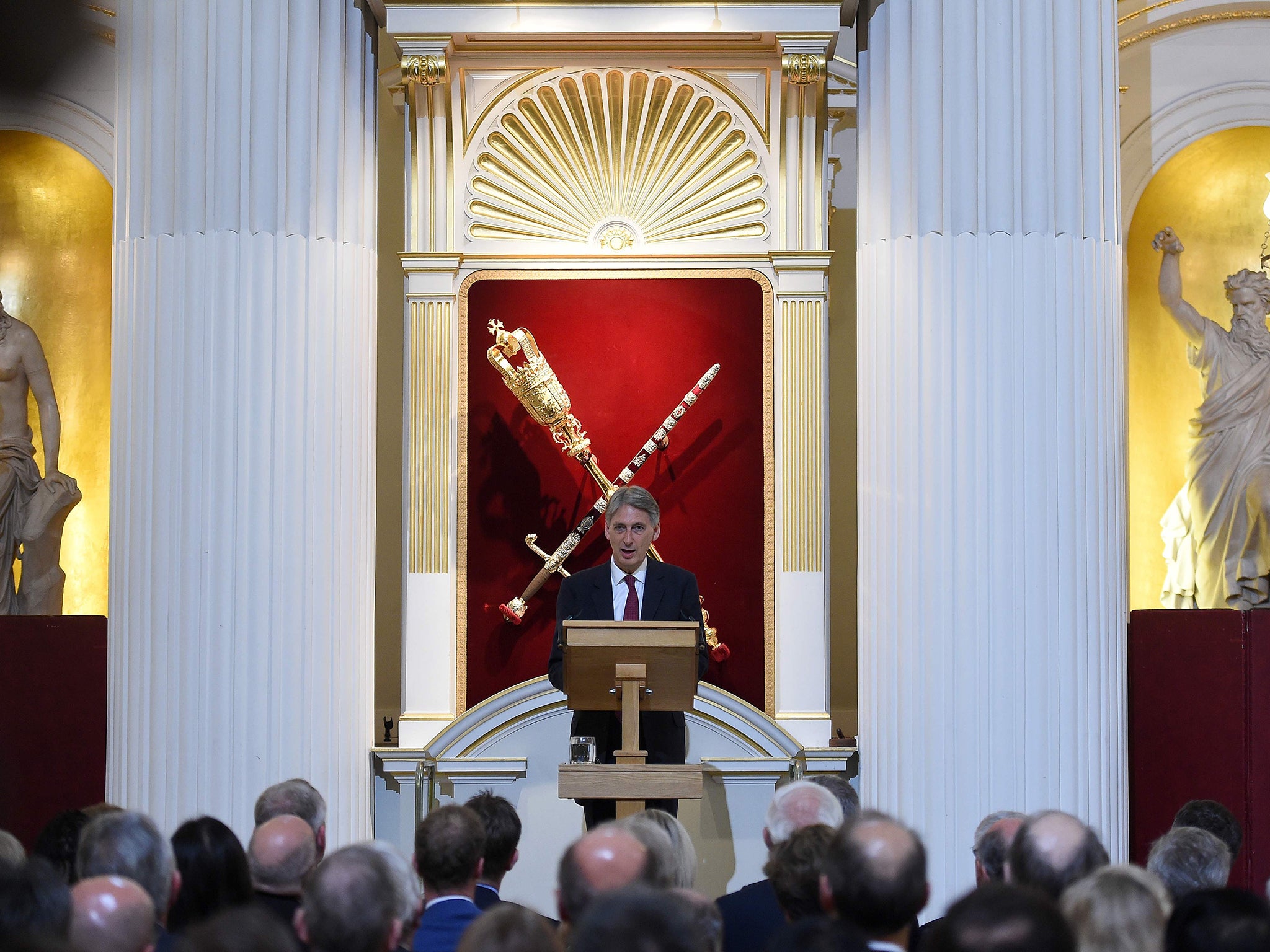Philip Hammond’s Mansion House speech is a welcome sign that the influence of extreme Brexiteers is fading
Hardliners are neuralgic about the idea of even a temporary transition arrangement for the UK after 2019


Philip Hammond insists, somewhat unconvincingly, that he wasn’t “locked in a cupboard” by Theresa May during the Tories’ catastrophic election campaign. But, regardless of what happened over the past two months, the Chancellor of the Exchequer is certainly out of the closet now as a defiant Cabinet champion of a soft Brexit.
The term “soft Brexit” is annoying Brexiteers, which in itself is a probably a good reason to continue using it. But let’s admit that it’s an elastic term and define it more rigorously here as a Brexit which does not involve the UK crashing out of the European Union in 2019 with no trade or customs deal in place and trading under only the most basic protections afforded by the World Trade Organisation (WTO).
Hammond’s Mansion House speech today essentially dismisses the fantasies of the headbanging Brexiteer wing that Britain could simply walk away from the EU divorce negotiations and select the WTO option without so much as an economic scratch in 2019.
“When the British people voted last June, they did not vote to become poorer, or less secure,” Hammond told his audience. He will have been thinking of the economic study produced by Treasury civil servants in May 2016 that projected a six per cent of GDP hit by 2020 (equivalent to a cost of £4,000 for every UK household) if the UK suffered a WTO-style Brexit.
The Brexit Secretary, David Davis, of course, doesn’t like that calculation. Yet he hasn’t commissioned his own updated estimate from his own civil servants – probably because it would show something very similar. No credible economist believes Britain would not suffer inordinately if we crashed out of the EU without a deal in place.
That’s why Hammond is stressing the imperative of agreeing “mutually beneficial transitional arrangements to avoid unnecessary disruption and dangerous cliff-edges” in 2019. This reflects the view of every trade expert that it is a delusion to imagine that the UK can agree a deal with Europe in the 21 months remaining on the clock. If we are to secure the “comprehensive, bold and ambitious free trade agreement” and also the “completely new customs agreement” that Theresa May and the Conservatives have laid out as their goal we are simply going to need more time; an extension.
Yet we should be clear from the outset about what would accompany a transitional arrangement post-2019. It would mean the UK, effectively, remaining part of the single market and also the existing EU customs union. In return for allowing this, the EU would certainly demand continued freedom of movement for EU nationals into the UK, continued British government payments to the EU Budget and continued oversight of the UK by the European Court of Justice. Our “borders, money and laws”, as the Brexiteers put it, would continue to be influenced by the EU.
There may well be some fudge over the institutional forms, to make this more palatable to London. The German foreign minister, Sigmar Gabriel, for instance, has suggested there might be a “joint court staffed by Europeans and Britons” to oversee the transition which effectively follows the ECJ rulings. We should be pleased that the Europeans seem keen to help our ministers to save face after their deluge of unrealistic and reckless rhetoric since last June.

Not that they’ll receive any gratitude from hardline Brexiteers, who are neuralgic about the idea of even a temporary transition deal because they fear it would be like the Hotel California: “You can check out any time you like but you can never leave”. They worry that negotiations for a new trade deal might get interminably bogged down, that the Irish customs border issue could prove intractable, that Britons might even cool on the whole idea of Brexit.
But the influence of the narrow obsessions of this group is, thankfully, fading. The inconclusive election result means that Brexit-sceptic MPs of all parties will now not be browbeaten by spurious “will of the people” rhetoric from the populist press. Businesses have had enough of the recklessness of the hardliners, and can be expected to raise their voice over the coming months to back a transition deal. The economy appears to be slowing down due to the inflation surge stemming from the pound’s slump, reducing the national appetite for gambles. A poll at the weekend suggests two thirds of the public already oppose Britain’s departure from the customs union.
It would be premature to say Brexit is being crammed back into its box. But, like the Chancellor, new possibilities for practicality and economic sense are, not before time, being liberated from the cupboard.
Join our commenting forum
Join thought-provoking conversations, follow other Independent readers and see their replies
Comments
Bookmark popover
Removed from bookmarks